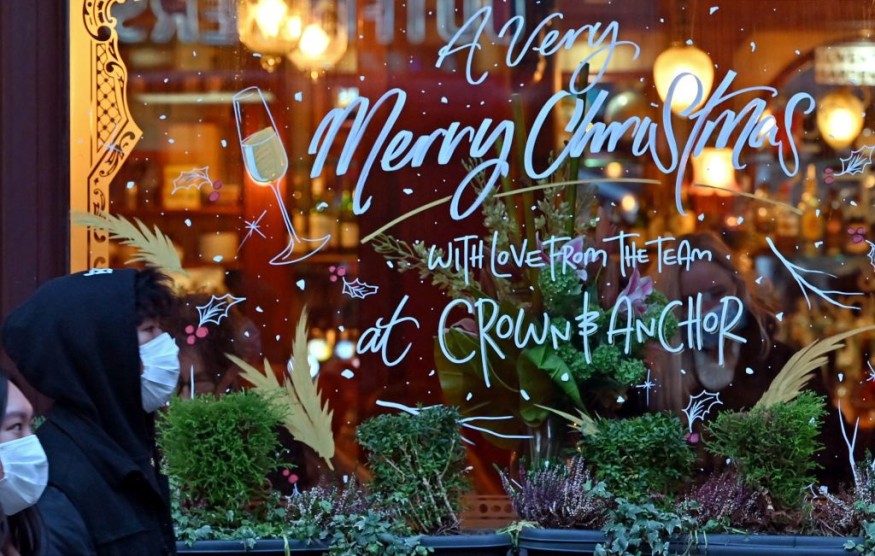A few days before Christmas day, Omicron variant cases continue to swell and many are concerned about bringing the virus to their families. Dr. Sharon Nachman from the Stony Brook University Infectious Disease Department said that everyone should be aware of the risks of celebrating the holidays with their loved ones and consider not attending when not feeling well.
The World Health Organization (WHO) has also released some guidelines on how to protect oneself and others during this festive season to prevent transmission of COVID-19.

1. Get Vaccinated
WHO always advises the public to get vaccinated. Approved COVID-19 vaccines currently available provide a high degree of protection against severe cases and hospitalizations.
Everyone should get access to vaccines, especially those at higher risk of infection like frontline workers, people over the age of 60 years old, pregnant women, and those with underlying conditions. Fully vaccinated people are better protected, and they also keep the people around them safe.
More so, health experts recommend those vulnerable persons to get a booster shot for added protection. ABC News reported that the government in Australia has already cut the waiting time for booster shots from six months to five so that millions of Australians will be eligible for their third dose before the year ends.
2. Wear Face Masks
WHO advises to still practice the health protocols implemented at the start of the pandemic even if you are vaccinated. One of these protocols is wearing face masks, especially when physical distancing is impossible and in poor ventilation. Just make sure that the mask covers the nose, mouth, and chin.
3. Physical Distancing
Physical distancing is still crucial for low transmission, even if people do not appear to be sick. Since COVID-19 can be transmitted via droplets from cough, sneezing, speaking, singing, or breathing through the mouth, nose, and other mucous membranes, physical distancing will help prevent spreading the virus.
Whether it is Christmas or the New Year, celebrating in smaller gatherings is still preferable because it allows for physical distancing and therefore has a lower risk of transmission.
ALSO READ: Thanksgiving 2021: How Could High COVID-19 Transmission Rates Affect the Holidays?
4. Cover Your Mouth and Nose When Coughing or Sneezing
When coughing or sneezing, always cover the mouth and nose with a bent elbow or use a tissue. Then immediately dispose of the used tissue in a closed bin and wash hands. Good respiratory hygiene will protect oneself and other people around them from COVID-19 infection and other diseases this Christmas or any other day.
5. Frequent Handwashing
WHO reminds the public to always wash their hands using soap and water or alcohol-based hand rub or sanitizers to kill the bacteria in their hands from touching surfaces and objects. People can touch contaminated surfaces, such as door handles and phone screens, which can cause various diseases, so it is always better to know proper handwashing techniques.
6. Avoid Gathering in Small Closed Spaces
WHO said that it is best to avoid the 3CS spaces: closed, crowded, and those that involve close contact. Avoiding small closed spaces is highly recommended because COVID-19 is easily transmitted in a crowd with poor ventilation. Opening the windows can help increase the amount of natural ventilation to prevent indoor transmission of the virus.
7. Know the COVID-19 Symptoms
Lastly, the UN health agency advises knowing the symptoms of COVID-19, like dry cough and fatigue, loss of sense of taste or smell, conjunctivitis, nasal congestion, sore throat, headache, muscle, and joint pains, skin rash, nausea, diarrhea, ad dizziness. If feeling any of the symptoms, it is best to stay at home.
RELATED ARTICLE : Checklist for a Safe Holiday Road Trip During a Pandemic
Check out more news and information on COVID-19 in Science Times.
© 2026 ScienceTimes.com All rights reserved. Do not reproduce without permission. The window to the world of Science Times.










